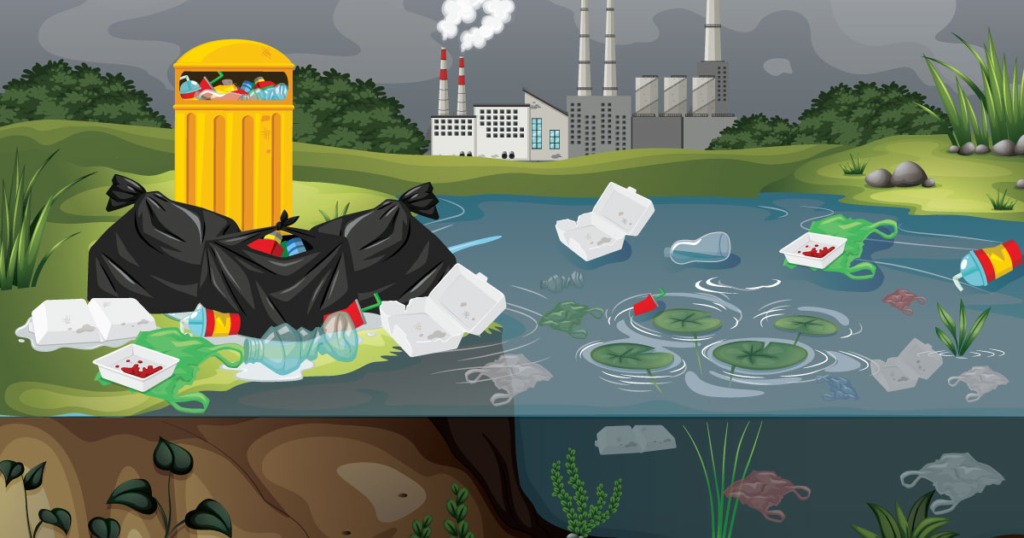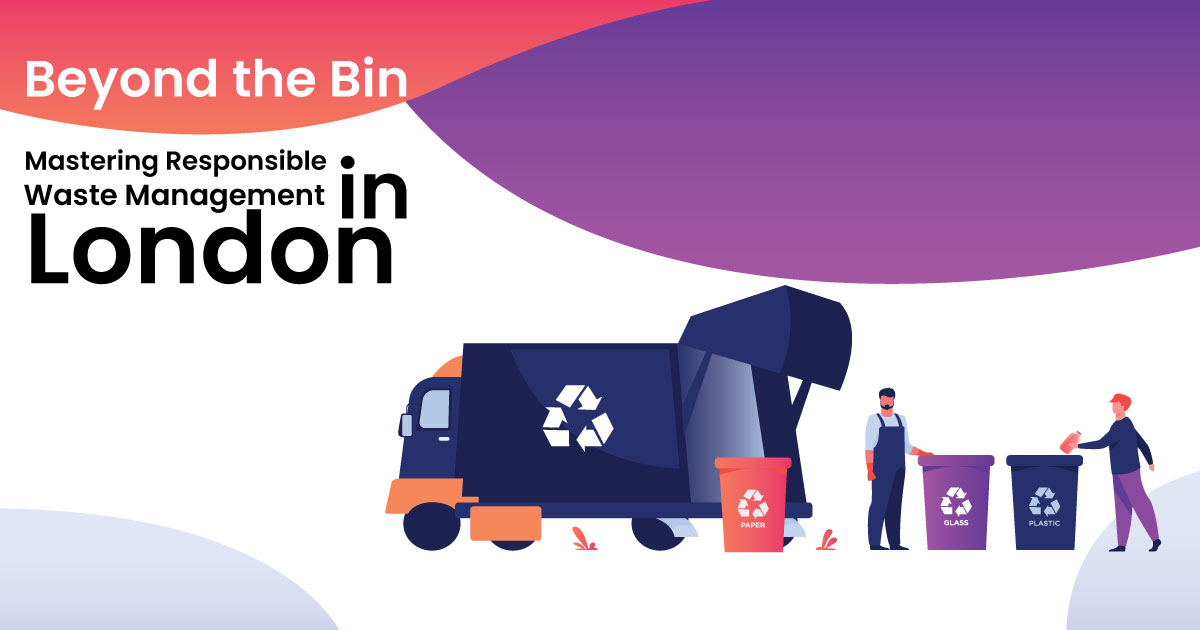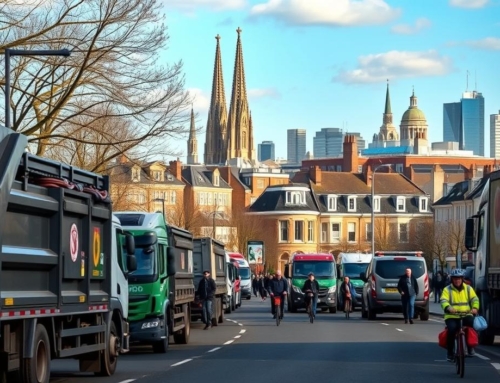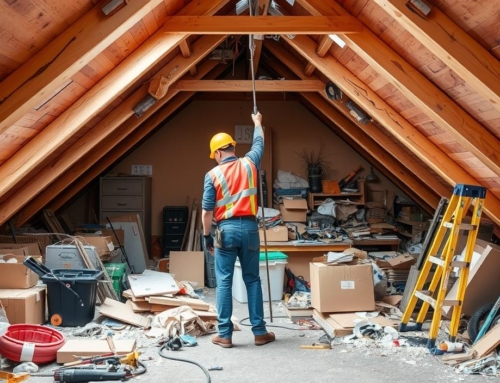Living in London means being waste smart, and services like house clearance make clearing clutter sustainable. With a big city and tough targets, getting rid of rubbish here requires more than just chucking things out with the bins. This guide shows you how to handle waste wisely, covering local options, green ways and tips to make the task in a busy city.
Key Points
- Multiple Choices: Residents can use council collections, recycling hubs or private services like garden waste removal.
- Eco-Friendly Focus: Sorting and proper disposal reduces landfill reliance and increases sustainability.
- Legal Requirements: Licensed providers avoid fines and fly tipping.
- Time Saving Solutions: Same day rubbish removal gives you quick relief from clutter.
- Specialist Help: Services like builders waste disposal and office clearance address your unique needs.
London’s Waste Landscape

The city produces massive amounts of waste each year – over 17 million tonnes in 2023 – because of its population and commerce. Households are a big chunk of that, but only about 40% gets recycled. The rest? Landfill or incinerators. With national targets for 70% recycling by 2030, we all need to think again about how we manage our waste.
For locals and businesses it’s not just about convenience – it’s a requirement. Whether you’re tidying a flat, revamping a site or running a shop, knowing your options is key.
Navigating the City’s Waste System
Council Services: Core Offers
Each borough has its own collection set up, often collecting bins weekly or fortnightly for general waste, recyclables and sometimes organic waste. Funded by council tax, these are free for residents but have limitations. Large items – like an old sofa or fridge – usually need to be booked separately and timings can be inflexible.
Disposing of bulky items can mean delays and rules vary across areas. Some charge for garden waste removal, others bundle it in. A quick look at your council’s website will tell you what’s allowed and what’s not to avoid mix ups or fines.
Drop-Off Points: Direct Action
Across London, Household Waste Recycling Centres (HWRCs)—or “tips”—take everything from gadgets to building debris. Free for home generated waste, they’re great for large or awkward items. But there are limits: visit caps, vehicle restrictions or fees for DIY leftovers like drywall will pop up.
For those who can haul their load, these sites ensure items go where they belong. Paint tins or busted tech fit right in. Heads up though—residency proof and pre-booking are often required.
Private Options: Quick and Flexible
When public options fail, private firms fill the gap. Need speed? Same day rubbish removal swoops in. Renovating? Builders waste disposal tackles the mess. These cater to a city where time and space is precious.
These providers lift the burden—loading, sorting and clearing—often outside regular hours. Yes there’s a fee but fair rates and green methods make it appealing for many.
How to Dispose of Waste Thoughtfully

Step 1: Divide and Conquer
Sorting is at the heart of smart waste management. London’s system is based on separating paper, plastics, glass and metals from everyday waste. Organic bits—like peelings or clippings—may get their own bin. Mumping these together risks contaminating recyclable batches.
For big jobs, say a house clearance, this step gets crucial. Chairs can be donated, devices recycled and bricks sent elsewhere. A little prep goes a long way in easing the load on the planet.
Step 2: Match Items to Methods
Not all rubbish fits standard bins. Hazardous stuff—think batteries or paint—requires special care, with councils and HWRCs offering safe zones. Large items—like mattresses—need booked pickups or tip runs.
Businesses doing an office clearance might shred files or recycle tech. Knowing where things go keeps you legal and efficient.
Step 3: Choose Your Option
Your situation dictates the choice. Small piles? Council bins are fine. Trimming hedges? Try garden waste removal. Post-build mess? Builders waste disposal is perfect.
Private help is best for urgent or heavy tasks. London Rubbish Collection for one crafts solutions that remove everything from worn furniture to site rubble all done responsibly.
Step 4: Check Credentials
Fly tipping is rife in London—over 300,000 cases in 2022. Hiring an unlicensed firm means your stuff could be dumped illegally and you could face £5,000 fines. Check any provider’s Environment Agency registration and ask how they recycle.
Trusted operators go green, diverting materials from landfills. This meets the regulations and supports the city’s green goals.
Custom Solutions for Specific Jobs
Home Clutter: Clear with Care
A deep clean or move often overfills bins. House clearance sweeps up broken items or unwanted furniture, sometimes instantly. Giving usable items to charity or selling online reduces the pile further.
Outdoor Scraps: Green Tidying
London’s gardens bloom but maintenance leaves twigs, clippings and dirt. Garden waste removal turns these into compost or recycled goods. Some boroughs do seasonal sweeps, but private crews offer regular access.
Build Sites: Taming Debris
Renovations produce rubble, planks and dust—too much for regular bins. Builders waste disposal sorts it fast often loading as you wait. Up to 90% can be reused if handled correctly.
Business Needs: Workspaces and More
Shops and offices produce paper, old desks or outdated machines. Office clearance clears these, safeguarding data where necessary. Regular pickups keep places tidy.
Rush Jobs: Instant Relief
Flooding or event aftermaths demand urgency. Same day rubbish removal jumps in, equipped for any task. More expensive, yes, but a lifesaver when time is ticking.
Planet Friendly Outcomes
Thoughtful disposal protects the planet. Landfills emit methane, a climate killer, and burning waste risks toxins. Recycling flips this—reusing one tonne of paper saves 17 trees and thousands of gallons of water.
London aims for near zero landfill by 2030 and relies on individuals and firms to help. Choosing recycling focused services—like those from London Rubbish Collection—shrinks your carbon footprint step by step.
Pricing
Prices vary by method. Council grabs are “free” via taxes but extras—like a sofa pickup—could cost £20-£50. HWRCs are free for household waste but DIY bits could cost. Private jobs are £60-£150 per load rising for larger loads.A service like same day rubbish removal costs more but is a timesaver. Shop around, watch out for add-ons (like traffic fees) and weigh up ease against elbow grease.
Reduce Waste Early
Stopping rubbish before it starts beats clearing it later. Try:
- Pass On: Share clothes or tools instead of binning.
- Mend: Repair gear at local repair shops rather than buying new.
- Compost: Turn scraps into soil at home.
- Shop Smart: Buy low packaging or second hand.
These habits lighten loads and wallets over time.
Conclusion
Waste management in London means looking beyond the bin for smart green solutions. Council rounds, drop-off sites and private services—like house clearance, garden waste removal, builders waste disposal, office clearance and same day rubbish removal—have got you covered. Sorting well, choosing licensed help and reusing keeps the city tidy and thriving. Whether clearing out, building or running a business, there’s a solution—fast, legal and kind to the planet.







